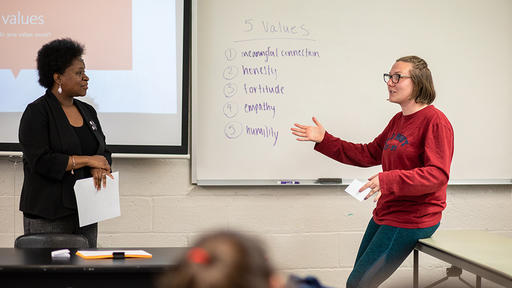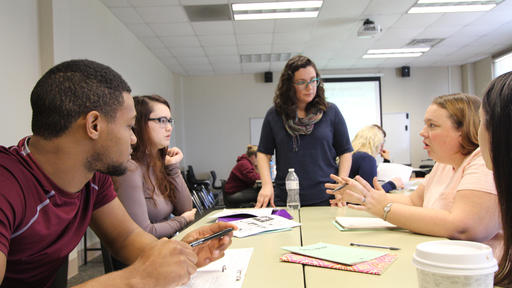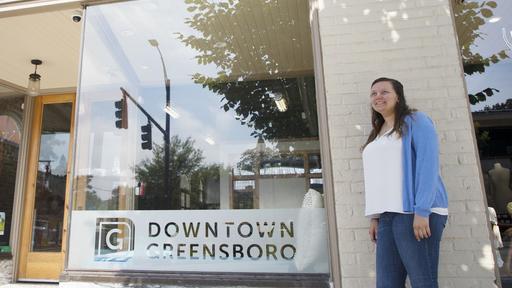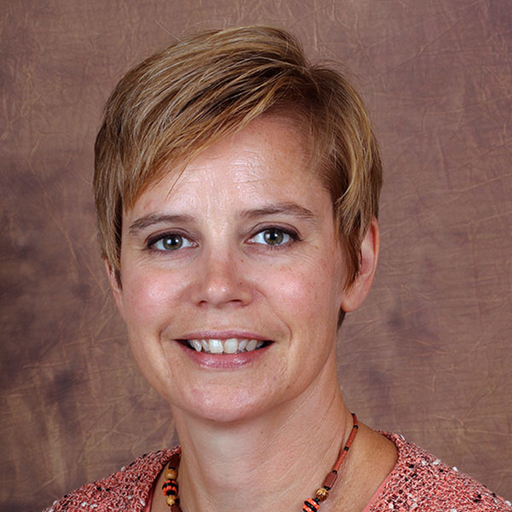Quality Enhancement Plan
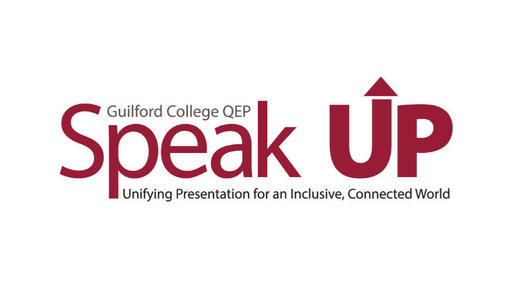
CASE STATEMENT FOR SPEAK UP
Consultation on the title of the QEP was a collaborative community process. Capturing the depth and significance of Guilford College’s QEP in a single word and/or simple phrase was a considerable challenge. However, a successful case was made for Speak UP, based on the following supporting principles:
- Speak UP is relevant, concise and easy to recall. Consensus was that this shorthand moniker would have growing — and staying — power.
- Speak UP is a powerful call to action. As responsibly engaged global citizens, we must all find and share our voice to affect positive change. Speak isn’t limited to our physical voice; it’s how we express ourselves and engage others through social media, art, music, dance, video, writings, research, etc. It’s the ability to also Speak UP for those who are unable to speak for themselves and amplify the voices of those whose voices are marginalized. It's about speaking up for justice, integrity, and equality. UP offers additional positive associations. It indicates and encourages taking presentations to the next level in terms of intellectual depth and engagement and raises the profile of important conversations.
- Unifying is an inclusive term with important meaning. An effective presentation should adroitly integrate the most impactful communication tools and form(s) of expression. At the same time, effective presentation includes, connects, and engages people of diverse backgrounds and perspectives, promoting globally engaged, open and inclusive communication that matters.
- In summation: Speak UP is a motivating call to action. It conveys the critical importance of leveraging the full breadth and power of our communication skills and tools to help create a more inclusive, connected world. Identifying, developing, and sharing voices in such a purposeful, inclusive way is one of the best ways our students can be engaged in changing lives — for good.
Speak UP FAQs
Students will benefit significantly from Speak UP. Fundamentally, it is a natural extension of the 2006 Writing in the Disciplines QEP. The plan is designed to help students further develop their communication skills by deepening their understanding of the multifaceted nature of public discourse as this applies specifically to public presentation. The essential benefit of this program is that students will learn to be more confident, professional, and knowledgeable as they share ideas within their disciplinary community, demonstrate their content knowledge beyond their discipline, and as they prepare for their careers. They will develop essential skills sets for the 21st-century work environment that are sought by employers, requiring both effective and persuasive interpersonal communication and the successful application of digital media competencies.
Our goal is to provide a shared common language to describe and organize the wide variety of approaches to making effective presentations that matter. That shared language focuses on answering the question: “so what?” In 2019, we produced a concise style guide—The So What: Design for a Common Language—that broke the process of creating a successful and confident presentation up into six steps: finding your story; identifying the audience; structuring your story; designing effective visuals; making the words work; and delivering, assessing and evaluating your presentation. Breaking down presentations into these constituent parts better provides students multiple opportunities to learn, practice, and execute public presentation as they develop through their major and Integrative Experience — the two core curricular components of the Guilford Edge. It also provides additional clarity for the division of labor on presentations done by teams.
Speak UP aligns with ongoing institutional commitments. The College’s commitment to collaboration is seen in Hege Library’s Academic Commons vision, as well as the work of the Center for Principled Problem Solving and Excellence in Teaching (CPPSET). The CPPSET and the Bonner Program coordinate efforts to further Quaker principles such as social justice. In light of the dramatic social changes that occurred over summer 2020, as well as the impact those changes had on the Guilford College community, we produced an addendum to The So What. The elements of the first edition focused on considering power relationships and justice in the context of public presentations, which had been moderately innovative the previous year, seemed quaint and timid as the nation struggled to address systemic racism. An addendum addressed these issues explicitly, incorporating silence and listening into the practice of effective speaking. Additionally, the addendum provided guidance on adapting classroom expectations to the sudden shift to remote learning.
Professional development of faculty and staff is integral to the success of Speak UP. Faculty will have the opportunity to participate in summer workshops and other training opportunities to learn best practices of integrating public presentations into their teaching. A shared common language in talking about the elements of successful presentations will improve systems and processes within the College as a whole.
To ensure the sustainability of Speak UP, faculty and educational support professionals within Hege Library’s Academic Commons will be involved in workshops and training sessions for purposes of strengthening the collaborative educational support model. The support of the Academic Commons will encourage faculty and support staff in the exploration of new pedagogical techniques and technologies, not only to enhance student engagement in public presentation, but also to develop faculty knowledge and expertise in inclusive public discourse.


